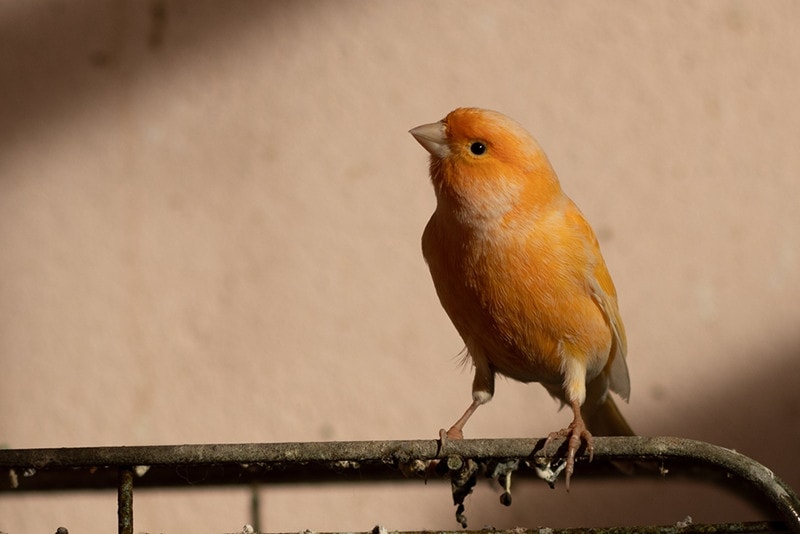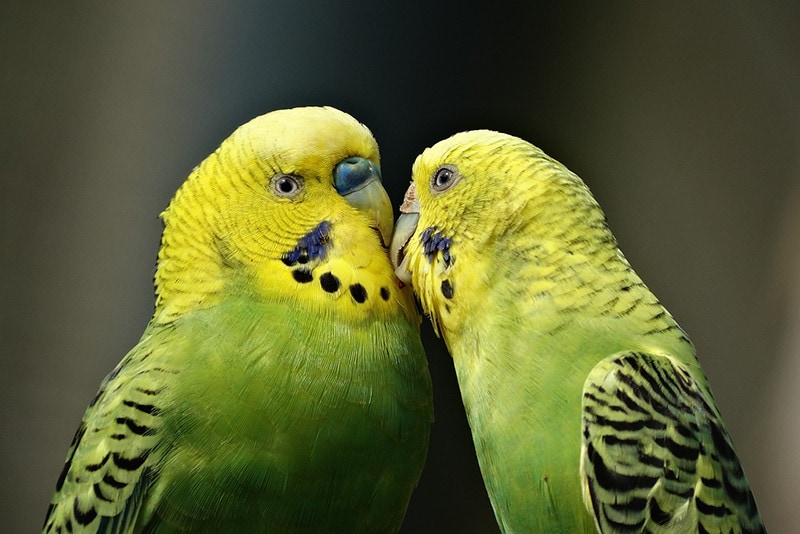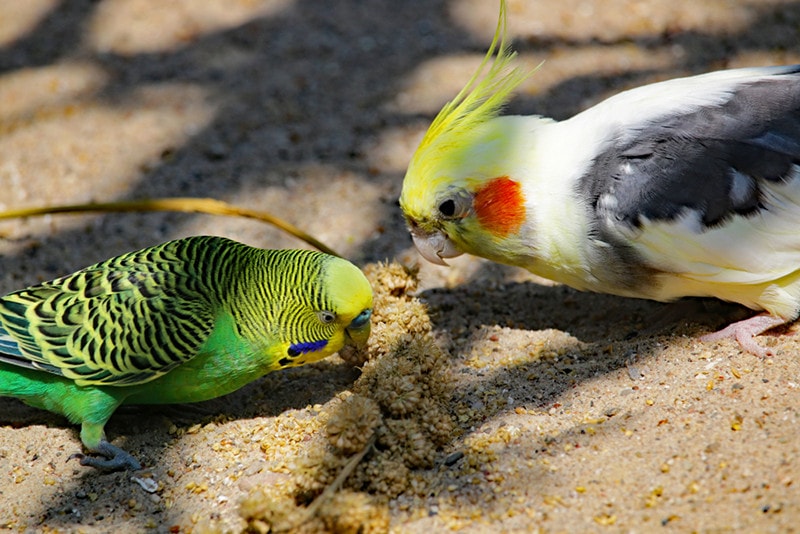Can Parrots Eat Pumpkin Seeds? Vet-Verified Nutritional Facts & FAQ
By Ed Malaker
Updated on
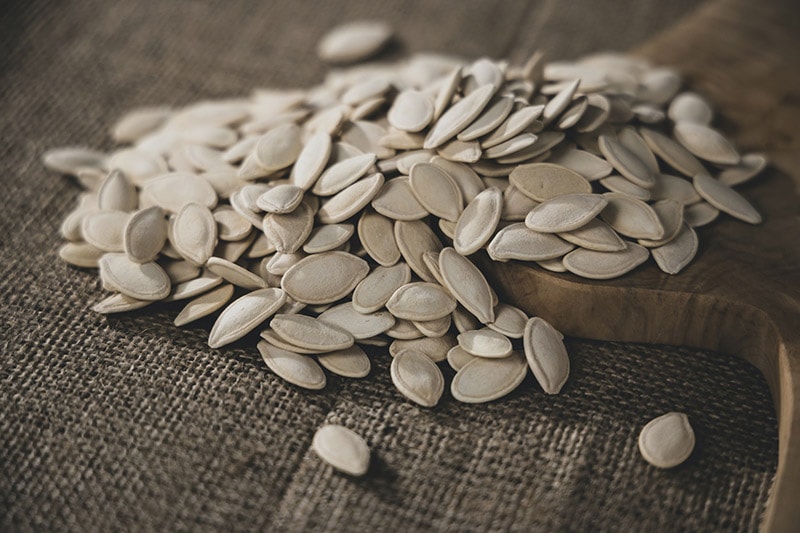
Click to Skip Ahead
With their colorful feathers and playful personalities, parrots are cherished pets for many people worldwide. They are fairly easy to maintain and have a long lifespan and a simple but versatile diet.
One food that many people wonder if is safe to feed a parrot is pumpkin seeds. Fortunately, parrots can eat pumpkin seeds in moderation. Keep reading for a list of the pros and cons of giving these seeds to these birds and the answers to common questions so you can be better informed. For the purposes of this article, we will be referring to bigger parrot species such as Red and Green Macaws (Ara chloropterus), as parrots can refer to various species with very different nutritional requirements.
Benefits of Feeding Pumpkin Seeds to Parrots
Rich in Nutrients
Pumpkin seeds contain essential vitamins and minerals, such as zinc, magnesium, potassium, and iron. These nutrients play crucial roles in maintaining your parrot’s overall health, supporting everything from feather condition to immune function.
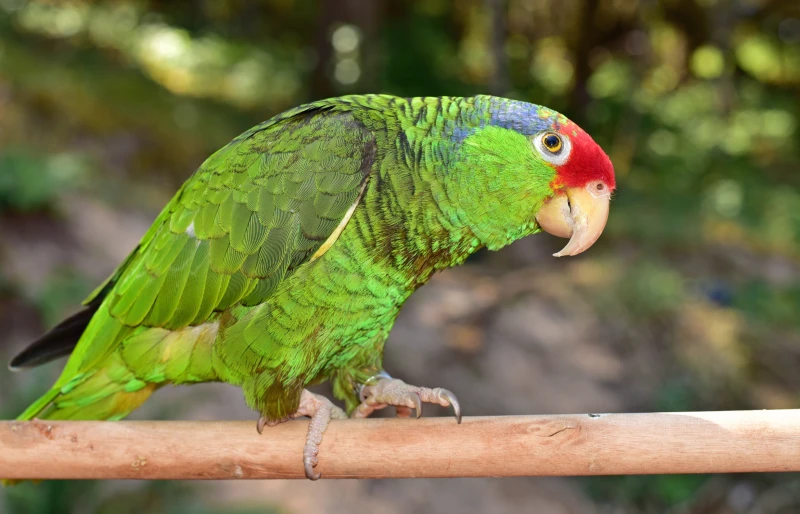
Healthy Fats
Pumpkin seeds are a good source of healthy fats, including omega-3 fatty acids. These are vital for your parrot’s cardiovascular health, brain function, and the maintenance of vibrant plumage.
Protein Boost
Pumpkin seeds are a plant-based protein source, which is essential for muscle development, tissue repair, and overall growth in parrots.
Antioxidant Properties
Pumpkin seeds contain antioxidants, such as vitamin E, which help combat oxidative stress and support your parrot’s immune system. Antioxidants play a crucial role in protecting cells from damage caused by free radicals.

Variety in Diet
Offering pumpkin seeds can add variety to your parrot’s diet, preventing dietary monotony. A diverse diet can be more appealing to your parrot and may help ensure that they receive a wide range of nutrients.
Risks of Feeding Pumpkin Seeds to Parrots
- High-Fat Content: Like many seeds, pumpkin seeds are relatively high in fat. While healthy fats are important for your parrot’s diet, excessive fat intake can lead to obesity and related health issues.
- Phosphorus and Calcium Imbalance: Pumpkin seeds contain phosphorus and an imbalance between phosphorus and calcium can be problematic for parrots. A diet with an incorrect ratio of these minerals may contribute to skeletal issues, such as metabolic bone disease. Ensure that your parrot’s overall diet is well-balanced in terms of calcium and phosphorus.
- Seed-Predominant Diet Concerns: Parrots are prone to picking out their favorite items from a mix, which can lead to a diet that’s too seed-heavy. A seed-dominated diet lacks many essential nutrients, and relying solely on seeds, including pumpkin seeds, can result in nutritional deficiencies and health problems.
- Allergies or Sensitivities: Some parrots may have allergies or sensitivities to specific foods, including pumpkin seeds.
How to Feed Pumpkin Seeds to Parrots
High-Quality Seeds
Choose organic and unsalted pumpkin seeds to minimize the risk of pesticide residues and added salt, which can be harmful to your parrot.
Moderation
It would be best to only offer pumpkin seeds in moderation. They can be part of a varied diet, but they should not make up most of your parrot’s daily food intake. A balanced diet includes a mix of pellets, fresh fruits, vegetables, and other nutritious foods.
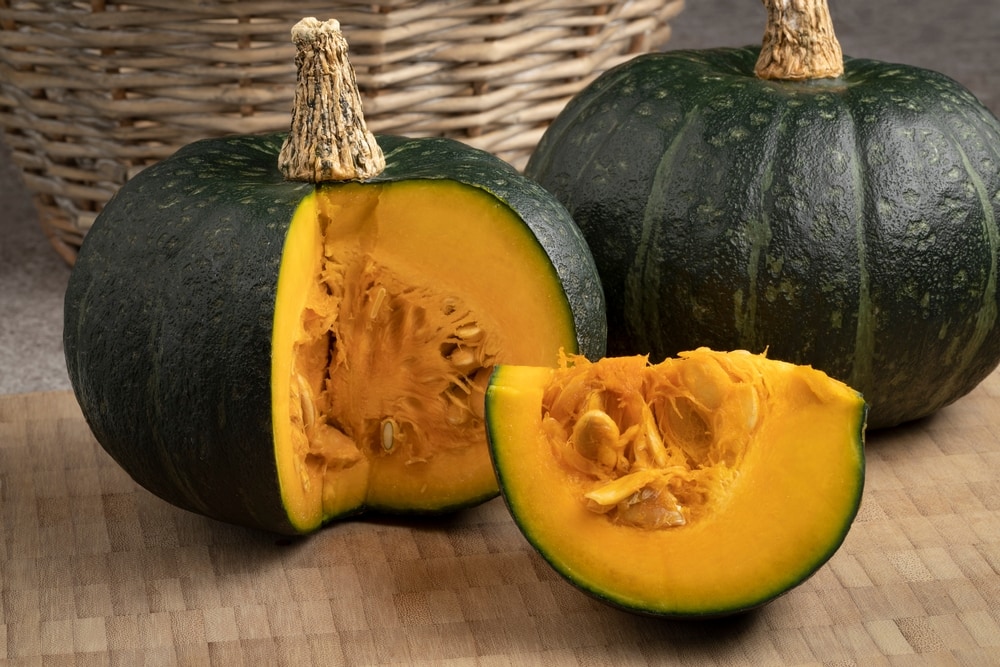
Allergies or Sensitivities
Introduce pumpkin seeds gradually into your parrot’s diet, especially if it’s the first time that they are trying them. Monitor your parrot for any signs of allergies or sensitivities, such as changes in behavior, feathers, or droppings.
Frequently Asked Questions
How Often Can I Feed Pumpkin Seeds to My Parrot?
Offer pumpkin seeds in moderation as part of a balanced diet. A few seeds a few times a week is generally appropriate, but the frequency may vary based on your parrot’s overall diet and health.
How Do I Prevent My Parrot From Picking Out Only the Pumpkin Seeds From Their Food Mix?
Mix the pumpkin seeds with other bird-friendly foods, or use them in foraging toys to encourage a varied diet. Consulting with a veterinarian can help address specific behavioral concerns if you feel that your bird is heading toward a nutritional deficiency.

How Do I Store Pumpkin Seeds for My Parrot?
Store pumpkin seeds in a cool, dry place, and ensure that they are fresh to maintain their nutritional value. Check for any signs of spoilage, and discard them if the seeds appear rancid or have an off smell.
Summary
Pumpkin seeds can be healthy treats for your parrot that provide a wide variety of important nutrients, including zinc, magnesium, potassium, and iron. They also provide a protein boost, which can help provide energy and is important for strong muscle growth. Pumpkin seeds contain healthy fats and antioxidants that can help keep your bird healthy. However, the high-fat content can lead to weight gain, and they don’t have an ideal balance of calcium and phosphorus, so you will need to limit them to occasional treats that are part of a balanced diet.
Also see:
- Can Parrots Eat Sweet Potato? Vet-Reviewed Nutritional Facts
- Can Parrots Eat Olives? Vet-Approved Facts & FAQ
Featured Image Credit: engin akyurt, Unsplash



